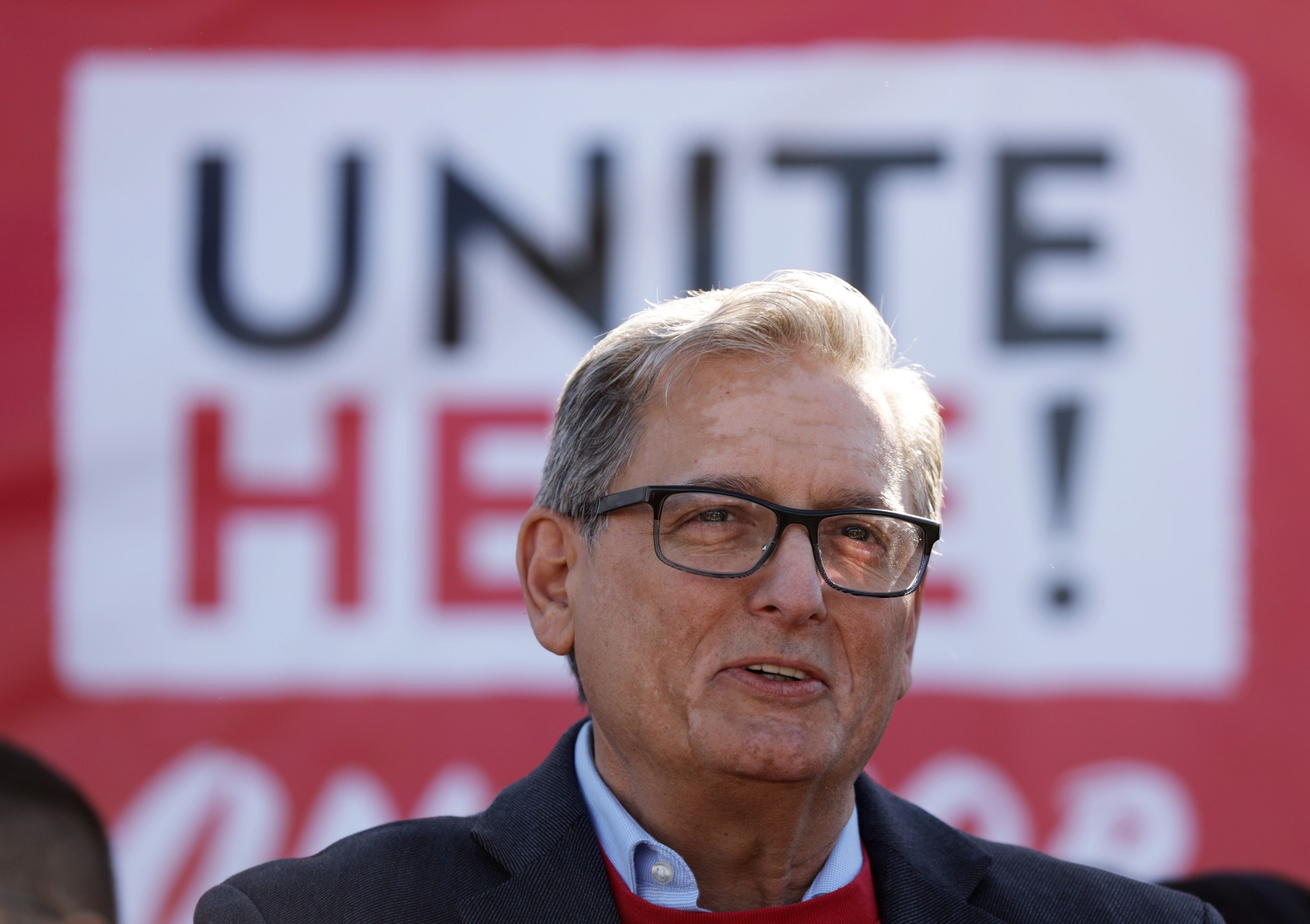Every time a server shuttles a lunch order to a table, or a mover humps heavy, yet fragile, boxes onto a U-Haul, or a hairdresser gives a customer a blowout, they put that day’s pay at the mercy of a stranger’s generosity.
They’re hoping they’ll be rewarded with a hefty tip.
For service workers, tips aren’t just a supplement to their income, but their main livelihood—a fact that’s become salient over the past few weeks when both presidential candidates, former President Donald Trump and Vice President Kamala Harris, proposed to eliminate taxes on tips.
Economists were lukewarm on the idea, but unsurprisingly tipped workers and the owners of businesses that employ them loved it. No taxes on tips means higher take-home pay, but would only be a stopgap solution to a much more intractable and pernicious problem: raising the minimum wage.
“That’s a key piece of this,” said Ted Pappageorge, secretary-treasurer of the Culinary Workers Union Local 226, which endorsed Harris’ plan and represents 60,000 hotel and restaurant workers in Nevada. “It’s like two sides to the same coin.”
That’s why the union has thrown its support behind Harris’ proposal, he added. “You’re not hearing Trump or any Republicans talk about [raising the minimum wage], and they probably won’t, but it’s a big piece of the picture.”
A spokesperson for Harris’ campaign said she aims to do both. “Vice President Harris would push for the proposal alongside an increase in the minimum wage,” they said. The Trump campaign did not respond to a request for comment.
There are valid questions to ask about the basic fairness of forcing certain workers to rely on customers’ whims to earn a living, said Pappageorge. But people struggling financially don’t have the luxury of contemplating the social dynamics and moral implications of American tipping culture, he said—they’re focused on making ends meet. For now, an imperfect, albeit immediate, solution is their best bet.
“Maybe when I’m dead and gone something will change,” Pappageorge says. “But working class families can’t wait for aspirational ideas and thoughts of what may happen 20 years in the future.”
Pappageorge’s words lay bare a harsh reality: the lowest-paid workers in the U.S. already earn too little to make a living. Those at the very lowest income levels likely won’t even benefit from a tax break because they already earn so…
Click Here to Read the Full Original Article at Fortune | FORTUNE…


